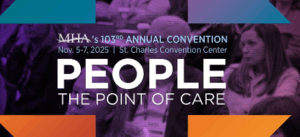October 21, 2025
![]()
MRHA Webinar: Expanding Access to Contraception in Rural Communities, October 23
Rural health providers face unique challenges in delivering comprehensive sexual and reproductive health services – including limited resources, staffing constraints, and geographic barriers. This session, presented by the Beacon Reproductive Health Network, will explore strategies to expand access to affordable, client-centered contraception in rural settings, with a focus on long-term clinic sustainability.
Attendees will learn about The Right Time, a Missouri-based contraceptive access initiative that equips clinics to provide a full range of same-day contraceptive options while reducing logistical and financial burdens for both clients and providers. The session will also introduce an upcoming pilot project available to rural Missouri clinics seeking to initiate, expand, or strengthen their contraceptive services.
Cost: Free
When: Thursday, October 23, 12:00 p.m. – 1:00 p.m.
Click Here to Register




